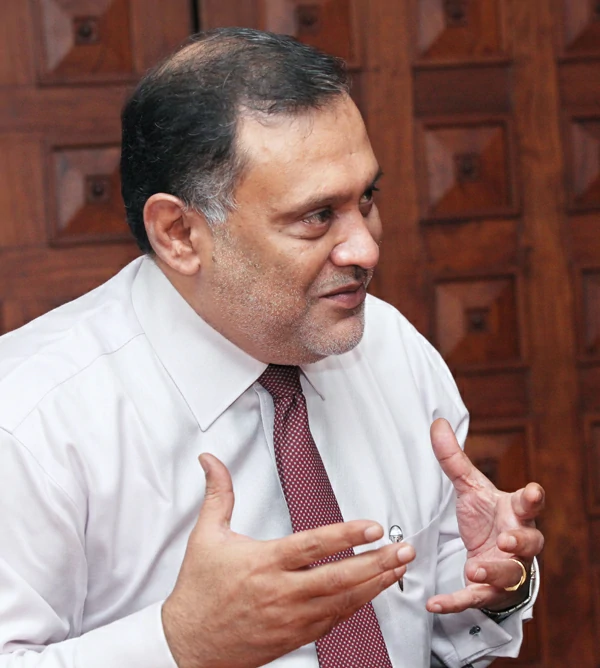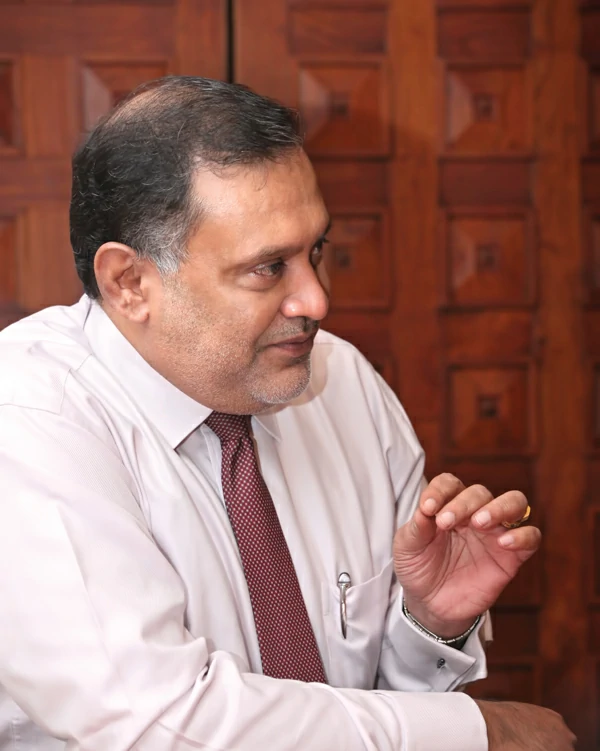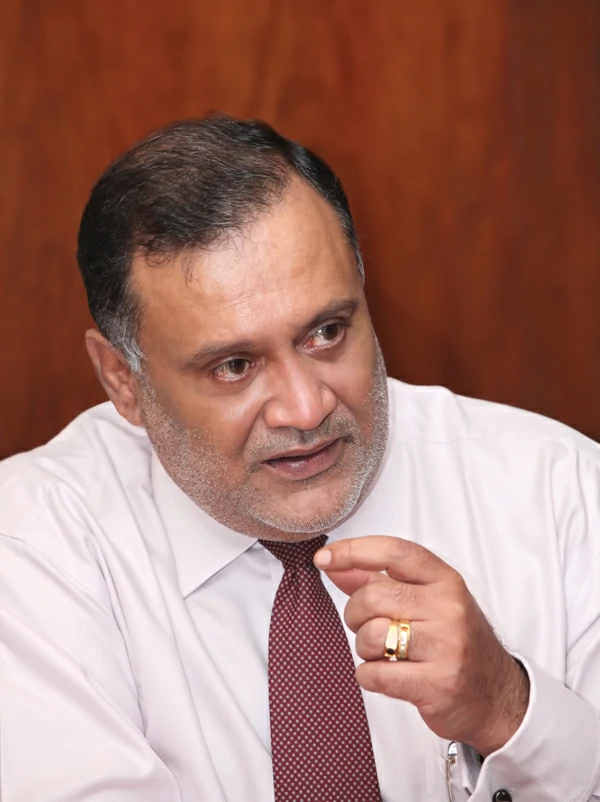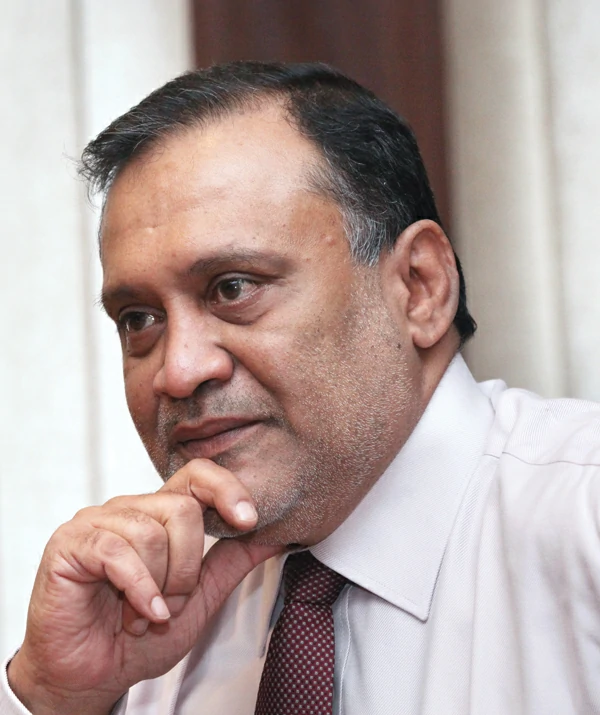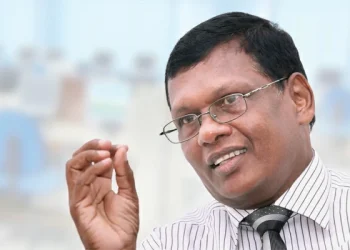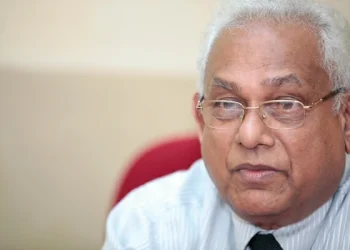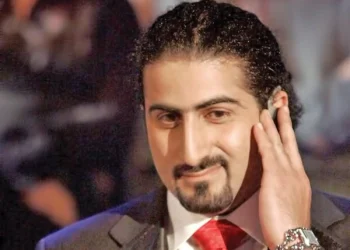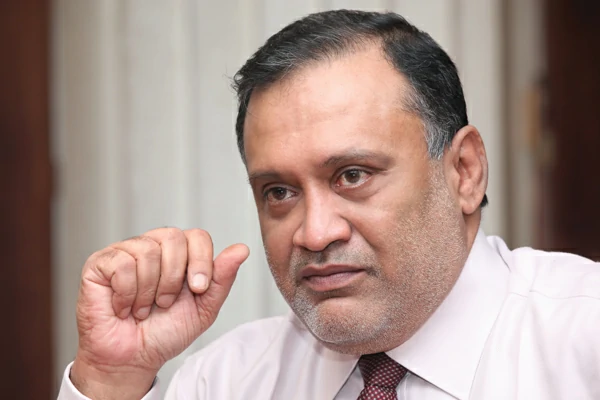
A Group that is often recognised as the corner-stone of the private sector in Sri Lanka, John Keells Holdings (JKH) remains the undisputed leader in the corporate sector of this country. With its “nothing is impossible” attitude, the Group has been able to perform despite the volatile macro environment, particularly in the past few years, both at home and abroad and has been a positive contributor to the Sri Lankan economy. With the conflict ending in May, 2009 much is expected from JKH and the private sector as a whole. Though new investments have been made, and/or are in the offing, they have not occurred at a speed that has been anticipated or is desired. Susantha Ratnayake, Chairman/CEO of John Keells Holdings spoke to Business Today about the need for the private sector to recognise that this may be the country’s last chance to make use of the hard won peace in achieving positive economic development for posterity.
By Udeshi Amarasinghe | Photography by Prabhath Chathuranga
“Nothing is impossible” is the attitude that has been the hallmark of the JKH culture and has seen the company grow substantially during the years. What can you tell us about this achievement and how the company attitude has propelled it forward?
The attitude is something that comes from the people in the company. We have continuously been able to reinvent ourselves and adapt to the needs and the circumstances. Like our country, we too have gone through many trials and tribulations. Because of its flexibility and agility, the Group has been able to manoeuvre adroitly through the challenges and obstacles which emerged from such circumstances. If not for such flexibility and agility, it would have been extremely difficult to survive. This has to come from the people within and we consider that as our greatest strength. At the time the war came to an end all of us met and we asked ourselves what was required, and what had to be different, in this new environment.
We concluded that there were a few basic things that we had to do. The first aspect was that we required a mind-set change across the Group. This was important, because the entire working life of the leadership, and most of our senior staff, has been in the shadow, and duration, of the conflict. Previously when decisions were made and implemented we always had the conflict, and its impacts and/or potential impacts, in the back of our mind and our assumptions, and decisions, were, to a large extent influenced by it. But, now since the conflict is over we have to change the way we think about the future. John Keells is a very young organisation; our employees are very young; the average age at the senior level is in the mid forties. The entire lives of the younger generation in the company, have also been through and in the shadow of, the conflict. Therefore, we knew that we had to think differently and that it was critically important for everyone to be on the same page if we were to make best use of the opportunities, which had opened out for our country.
The second aspect that we discussed was whether we had the required skills in the Group. The skills that we require in this environment are very different to the skill sets that were required during the past. The pace at which things would happen requires a different set of skills and the same goes for the execution which, needless to say, had to be meticulous. We are bound to make mistakes because it is an unfamiliar environment that we are treading. Whilst lesser the mistakes the better, we have called 2011 the year of innovation and we have encouraged our staff to think differently and do things differently, and as you would appreciate innovation may lead to some mistakes.
The third aspect was the depth of the Group. As you know in this new environment one of the big challenges this country faces is human resources. Unfortunately for John Keells, or fortunately for others, John Keells is the first stop everyone makes when they are looking for people. Therefore we had to build a pool of human resources which had depth. We looked at this about two years ago and some of the steps we took at that time have yielded the requisite results.
One of the mechanisms we put in place was the formation of fora at each level of executive staff upwards and in business units/functions, where the senior most executives interact, within a formal/informal atmosphere, with the youngest employees at every level within such businesses/functions in understanding where the Group could do better and thereby add value. These fora helped us to communicate our message and vision to a broader and more relevant audience and also enabled us to get a feel for the depth of talent we had. However, this is just the beginning of what is going to unfold. What lies ahead is something that we have never seen or experienced before.
With the war over, peace and stability has been established. What plans have been made to expand the business? How is the private sector moving forward in general?
Let me first talk about our business. We first sat down and charted our short, medium and long-term course. We have agreement on this at board level. Our immediate first steps have been agreed and have been implemented. We have many projects on the ground and we are probably ahead of the others in the private sector in these respects.
The private sector in Sri Lanka can move faster. Many are still coming to grips with the opportunities that a peace laden environment has to offer. The private sector did not expect the conflict to end as quickly as it did and even though it was imminent from around end 2008, when it actually did happen most companies were not prepared for it. Earlier, the private sector could take chances and if it went wrong or a company made a mistake they could blame it on the war. But now there is no excuse. This has, to some extent, contributed to the hesitancy in the majority of the private sector to really make use of the opportunity that is in front of us. Now, that we have a secure environment and now that the fundamentals are in place, there is no excuse that we can give.
It is a tough, but happy situation, which we are in. As I said before, this is an environment that we have not seen and never known. The faster we understand this new environment and make use of the opportunities available therein, that is when we will see sustainable development in the country.
Tourism is a key area for the economy and JKH plays a significant role in this sector. Tourist arrivals are increasing year by year. However, it seems that the industry is not yet ready, what are your thoughts on this?
We have seen record arrivals in 2010 and in January 2011, we saw the numbers grow by 46 percent over January 2010. Chaaya Bey, which is a 200 room hotel in Beruwala, is the first and only green field hotel project of any scale, on the part of the private sector, that has got off the ground up to now. Why more of these have not taken off is rather puzzling.
Yes, there is refurbishment activity taking place and the country is upscaling the product. Whilst all this is happening quite widely, it is difficult to comprehend as to why no new large-scale projects have still not got off the ground. Yes, there have been projects that have been announced but nothing has actually started and mind you, it has been two years after the end of the conflict. Hopefully the high profile investments announced by Shangri-La and CATIC will prove as catalysts and galvanise some action. To build a 200 – 300 room hotel takes two to two and a half years. If we are to achieve the two and a half million tourists that we are talking about in 2016, work has to start sooner than later.
This Is An Environment That We Have Not Seen And Never Known. The Faster We Understand This New Environment And Make Use Of The Opportunities Available Therein, That Is When We Will See Sustainable Development In The Country.
How should the authorities guide the industry?
The approval processes have been cumbersome. However, the Ministry of Economic Development and the Sri Lanka Tourism Development Authority (SLTDA) have established a one-stop shop where all projects will be directed and managed. This is a very positive development. In order to begin a project we have to get a large number of approvals and what the one stop shop is doing is that they have brought everyone together under one roof and it is being coordinated by SLTDA. We have used this unit and have seen it working extremely well.
Now the Government plans to target high-end tourists, with the current situation do you think this should be our target market?
We certainly have to move up the value chain but we cannot say that we want only high-end tourists. That does not work. If you look at the Maldives, which was going in that direction, they suffered heavily during the global downturn. Sri Lanka needs the right mix and we certainly need to move from the type of tourists that we cater to now to a higher level of tourists. To do that, apart from good hotels, we also need the infrastructure because no one wants to travel five to six hours to get to a destination, especially if we want to attract the higher end tourists.
Infrastructure is being developed on a massive scale and that is very encouraging. SriLankan has launched an air taxi service and this is commendable. However, much more needs to be done as far as infrastructure and other facilities are concerned. High-end tourists do not want to come here and do nothing. Yes, we have culture and wildlife to see but they also need other forms of entertainment. So there is much more that has to be done to the product offering to be able to cater to the different segments. I do not think we should cater only to one particular segment. We have to cater to a variety of segments and as you will appreciate that is one way of hedging the risks.
Infrastructure Is Being Developed On A Massive Scale And That Is Very Encouraging. However, Much More Needs To Be Done As Far As Infrastructure And Other Facilities Are Concerned.
What can we expect from JKH in this sector?
We have committed significant sums of money to the leisure and tourism sectors and this will be a big focus area of the Group. We have practically redone Chaaya Blu. We have refurbished the Courtyard Wing of the Cinnamon Grand. We are in the process of refurbishing the remaining rooms of Cinnamon Lakeside. Cinnamon Lodge, Habarana, is now a five star hotel following a major refurbishment. Coral Gardens has had an almost complete strip and will be upgraded to a new level when it is reopened with 156 new rooms in October this year. The hotel will be renamed as Chaaya Tranz. Chaaya Bey, which I spoke about earlier, will be opened in May 2012. Then in May this year Yala Village will be closed for a complete refurbishment and construction of additional rooms. This will come under the Chaaya brand after completion.
We have a land bank and some plans have been formulated to develop such available land on a selective basis. We plan to add 200 rooms every year going forward as we believe that tourism will be one of the quickest sectors to recover and it is an area where Sri Lanka has the competitive edge over some of its competitors.
One thing that we have to be careful is that we do not overprice or out price ourselves. Everyone is not waiting to come just to Sri Lanka. There are other alternate places they can visit. We cannot suddenly say that since the war is over everyone wants to come to Sri Lanka and increase the rates to 500 – 600 dollars for a room that we were charging 30 – 40 dollars just a couple of years ago without improving the standard and quality of our product and providing infrastructure. We just cannot do that and that is what happened this winter when some companies overpriced themselves. If not for that tourist arrivals into the country would have been higher. Therefore, it is very important that we do not overprice ourselves because competition is out there. We are not the only destination available for travellers.
The Government is also looking at introducing for example theme parks and shopping malls, something additional for the tourists who come here. But Sri Lanka is known for its wildlife, heritage, nature and beaches. How do we balance the old and the new without losing our identity?
The people who come here, yes they want to see our heritage and wildlife, but they also want entertainment. We have to create a product that fulfils the requirements of the discerning visitor. We cannot base our tourism on heritage and wildlife only because then we will be catering to a limited market. We have everything from wildlife to culture to beaches, we need to just tweak the product offering a little so that we have variety to match the competition.
The Fact That We Constantly Evaluate Our Portfolio Is One Reason For Our Success. Although, Transportation Has Been The Biggest Contributor To The Group’s Profits In The Past We Do Not Expect It To Be The Case Going Forward.
There are segments that come only for shopping to Sri Lanka. For example, take the Indian market. They do not do the traditional round trips that the westerners do. They are based in Colombo, Bentota and Kandy and they do a lot of shopping. The Indian market will come here for the entertainment and the shopping and they love Sri Lanka. Therefore we need to create the facilities to cater to this very important segment. Currently in Sri Lanka we do not have a proper mall or entertainment similar to those you get in Singapore and Malaysia. I do not think we will lose our identity by catering to a broader market need. We must create and make available the whole product rather than have just one aspect of it.
Transportation has remained a main contributor to the Group. With the growth in infrastructure projects and trade volumes and accelerated development in the North and East, the prospects for ports, shipping, logistics and airline travel are positive. Can we expect any new ventures in this area from JKH?
Yes, we are constantly looking at our portfolio and transportation is one of the many sectors that we have been looking at. The fact that we constantly evaluate our portfolio is one reason for our success. Although, transportation has been the biggest contributor to the Group’s profits in the past we do not expect it to be the case going forward. We were always aware that our portfolio had a certain imbalance when viewed from an angle of concentration of contribution. It is pleasing to note in our third quarter results that the contribution from transportation has reduced from around 60 percent to about 35-40 percent with leisure, property and financial services kicking in a more pronounced manner. The immediate gains will be more visible in the leisure sector as we benefit from the product already on the ground and the significant capital that will be deployed as we refurbish and add more rooms. It will take another two to three years to have a portfolio, which has the right balanced mix. Transport will not be our main contributor but it will certainly be an important and significant part of our business.
We Know That Our Products Are As Good As Anything Available Internationally Or Even Better So Why Should We Just Watch And Wait.
The property market went through a tough period and is now regaining its momentum, JKH has had success with Monarch and Emperor and is now embarking on its latest venture ‘On three 20’ in the heart of Colombo. What can you tell us about the current property market?
The current property market is very buoyant. Within one and half months of launching our latest project ‘On three 20’ we received 70 percent bookings off plan. The general trend is for a stock market resurgence to be followed by resurgence in the property market. Just prior to the end of the war, we didn’t even have an inquiry for the then available unsold apartments at the Emperor. But soon after the war was over we sold the balance apartments quite quickly and this included the high-end presidential suites that went for about 150 million rupees. As you know we have a substantial land bank and property development will be another area that we will be looking at closely.
Will we see further expansion of the consumer food and retail sector of the Group?
With the markets opening out in the North and East, we have had broader access in furthering our consumer goods business. We plan to expand on the product portfolios and recently we invested in an ice cream plant. There are further investments planned in this area. We commissioned new bottling lines a couple of years ago, thereby increasing our available capacity and we have plans to enhance the product. As you know Keells and Elephant House are very strong household brand names and we will capitalise on that in enhancing the product portfolio.
The launch of KIK was a bold decision as we were taking on the multi nationals. Now it is almost three months since we launched KIK and the response has been on plan or slightly better than what we expected. We know that our products are as good as anything available internationally or even better so why should we just watch and wait.
If The CESS That Is Collected Is Ploughed Back To Help The Industries To Add Value That Would Be A Very Good Way Forward.
On the retail side, the supermarkets are expanding. We have our new model, the K-Zone in Moratuwa where it is similar to a mall. K-Zone in Moratuwa was our first venture in the larger format along that of the mall concept. The initial response has been very positive. In fact it is one of our best performing supermarkets. We will look at expansion in the retail side as well, but on a selective basis.
JKH has started its programmes in the North and East. What plans have been made for those areas?
In the areas of soft drinks, ice-cream and consumer foods we have moved in and today our products are widely available all over the North and East at the same price that is prevalent in the rest of the country. Earlier a bottle of soft drink in these areas was around ten times more than what it was in the rest of the country. NTB, our associate has already moved in and Union Assurance, which was always there, has significantly upped their game. As you know we did a full refurbishment/upgrade/expansion of the Chaaya Blu in Trincomalee and we are looking at a couple of more projects in the East from a leisure perspective. We are partnering with USAID in a logistics operation in the North and that will help the producers in the North to reach new markets.
Apart from business, we have our English language programmes in the North and the East in addition to other CSR activities such as Village Adoption.
Value addition is given priority where as export of raw materials have been discouraged with the introduction of a CESS tax. How will this affect the private sector?
I feel this move is in the right direction and Sri Lanka should add value to its exports. Having said that the CESS that was imposed on the exportation of tea in the bulk form could have been introduced with notice so that people could have planned better.
If the CESS that is collected is ploughed back to help the industries to add value that would be a very good way forward because people need the capital to invest, to add value as some of the smaller companies would not have the resources to do that on their own.
Private-Public Partnerships are encouraged by the Government. The Colombo Port is a good example where critical infrastructure has been done by the Government enabling the private sector to invest in the commercial activities. Will JKH engage in more PPPs?
Yes, the first PPP was ours in the Colombo Port with the SLPA and is a huge success and I feel that is the way forward. The private sector cannot invest in large infrastructure such as breakwaters because, in general, they do not have access to long term funding and in most cases, investors do not have the appetite to ride out long gestation periods and the associated risks. Therefore, this model is a good model. However it is important that the public sector and the private sector formulate the PPPs together. If it is done with prior consultation, I believe we would achieve better results. If the private sector has to fit in to what is already built you may not be able to leverage the partnership to the maximum potential.
The Government Has Shown The Right Way By Reducing Taxes. In Fact, We Were Pleasantly Surprised By The Wide Ranging And Significant Reforms That Have Been Proposed And Are Currently Being Implemented.
The 2011 Budget saw the tax system being restructured and is pro private sector. Can you tell us how the private sector will perform in this new environment?
The private sector has to move and move quickly. We have been asking for a simplified tax system for a very long time. We should applaud the Government for restructuring the tax system. During the past few years the cost of doing business in Sri Lanka was very high. We had about 27 different taxes to contend with and its management was very difficult. People would rather avoid paying taxes because it was such a complex regime. What the Government has done is excellent. It is the way forward and it shows that the Government is serious about creating an enabling environment and in that sense it is a very positive move.
As for incentives per se, I am a believer that people do not embark on new projects just for incentives. People do not invest solely because of the tax holidays. People will come here if the project makes sense, can be executed easily and they can earn a reasonable return on their capital. They do not mind paying taxes if they can earn a return that is commensurate with the risks that they take. There is a school of thought that investors need incentives and tax relief to do projects. I do not agree. For example if the Government is going to pay you to build a hotel then it really doesn’t make sense, does it?
The incentives being reduced and restructured is also a good thing. A regime where certain businesses were not paying any taxes and as a result those who were liable for tax having to pay heavily is, in my opinion, not a fair one. Businesses subject to such heavy taxation were obviously not viable. People were talking about the banks paying high taxes, but if you take some of our other businesses we used to pay 60 percent in taxes. Those businesses were fast becoming unviable not due to inefficiency but because of the tax burden they had to bear. Every business needs to pay taxes, but to overtax a particular industry is not the right way. The Government has shown the right way by reducing taxes. In fact, we were pleasantly surprised by the wide ranging and significant reforms that have been proposed and are currently being implemented.
What should the role of the BOI be in this current environment?
The BOI has not been the real one-stop shop that it was meant to be. The BOI has four or five divisions, each working in isolation of each other, so the investor was left to his own devices to manage the process. Bringing these divisions together and forming clusters is, in my view, the way forward. The types of projects that have been coming to Sri Lanka in the past were small-scale businesses. The types of investment that we are targeting, and are likely to attract, are bound to be much more complex. Currently, the investor has to manoeuvre through the bureaucratic maze that we have in Sri Lanka and this is not what an investor seeks. Therefore the plan to restructure the BOI and make it more focused and useful to the potential investor is the right way forward.
There is a general perception that the private sector is lagging. An enabling environment has been created with peace, security and stability, the Government has provided opportunities for the private sector. What are the reasons for the sluggish approach of the private sector?
This blame game must stop. When you talk to the Government sector they blame the private sector, when you talk to the private sector they blame the Government. This is a waste of time and energy. This is one big chance that we have as a country and possibly the last chance. If we do not get it right this time I think we have lost a huge opportunity. The world will simply pass us by. All of us will be blamed by the generations to come if we do not make use of this opportunity.
The private sector has a role to play, the Government has a role to play and civil society has a role to play. As is typical in Sri Lanka, we either try to blame the other person or try to do the other person’s job. If we clearly understand our respective roles and why we are here, it is going to be easier for us to move forward. Yes, the private sector has been slow to an extent in reacting. There are possible reasons, though not excuses, but the Government too has a role to cut through the bureaucracy and create an environment for investment to happen.
It is good when the fundamentals at the macro level are in place. But as I said earlier, ultimately it is going to be the execution. Sometimes the private sector cannot execute on their own because of the need to obtain approvals and conform to bureaucratic procedures. It is important that we all realise the role each of us have to play, and as soon as we are clear about that, things will start to move. But we have to stop this blame game.
JKH is a giant in the Sri Lankan private sector and all look up to the Group, what would you say is the success of the company?
Whether we remain a so called giant or not, only time will tell. Sri Lanka was somewhat of a closed economy during the 30 years of conflict. Very few people looked at investing in Sri Lanka. Yes; we may be perceived as a giant in a relatively small economy. Now we have the real giants coming in, Shangri La for example. If you look at how corporate Sri Lanka has evolved, lets ask ourselves “who were the so-called giants then?” Some of them are not even on the map today. Unless you are able to reinvent and recreate yourself, to meet the changing times you are not going to remain a so-called giant. This is where our true mettle will be tested.
This Is An Opportunity That We Only Dreamt Of And If All Of Us Do Not Use This Opportunity, We Are Going To Be Blamed By Our Future Generations
The so-called giants have a lot of baggage that they carry, but the “young” companies on the block or the people who come from outside do not carry any baggage, nor do they suffer from “conflict time” assumptions. They come with a clean sheet and an open mind. If the old established companies, ie the so-called giants of yesterday and today, continue to do the same thing that they did in the past 30 years, they will become dwarfs in a much bigger and robust economy. That is why we keep telling our people at JKH, that we cannot carry old baggage, that we cannot say ‘this is how we did it then; we were successful in the past; so let’s continue to do what we are doing’. This is the mind-set change which I spoke of earlier; the mind-set change that we are creating across the Group. It is a challenge and we have to be able to recreate ourselves. I am very happy that investors such as Shangri La are coming to Sri Lanka. That is a huge positive for Sri Lanka and it is an absolute opportunity for people like us to up our game and be counted with the best in the world.
We have started. We have tied up with the Emirates School of Hospitality and we have sent 300 of our staff to Dubai for training and exposure. We have asked them to experience “what is out there”. Thousands of others have been trained on the ground and are being trained as we speak.
I would be happy if we remain relevant in a larger economy rather than remain the so-called giant we are today in the context of the small economy previously limited in its potential by the impacts of an ongoing conflict. To do this we will have to constantly reinvent ourselves, and this we will do.
What is your message to young entrepreneurs?
In this new environment the young entrepreneurs are the ones that are better positioned than us. All I can tell them is that do not do it for tomorrow. You have to be in it for the long term. You can come into this environment and make fast money but you will disappear as fast as you came unless you have a long term perspective.
Finally,
This is an opportunity that we only dreamt of and if all of us do not use this opportunity, we are going to be blamed by our future generations. Yes we will have some external shocks in prices and yes they are relevant and may be serious, but if we can get our act together we can make them irrelevant or in the least, bearable. This is our last chance.
